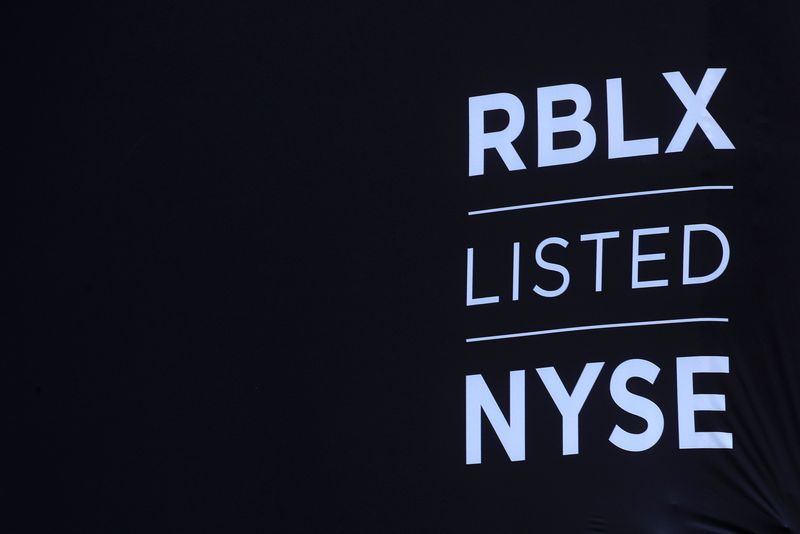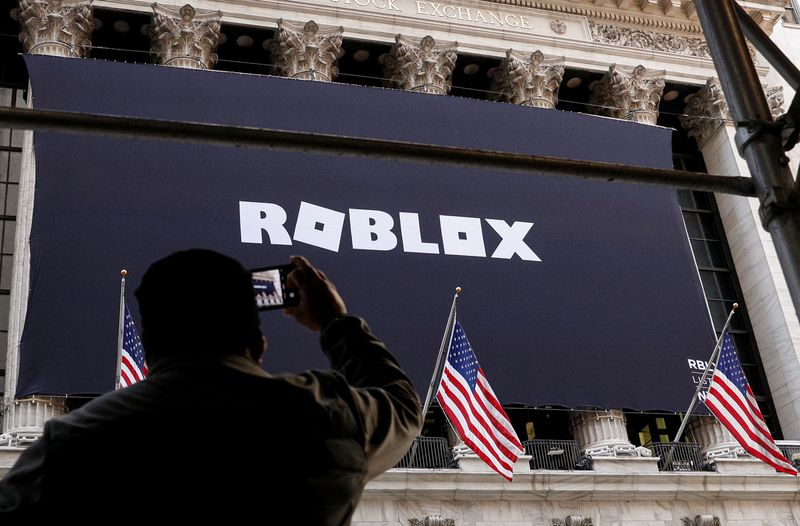By Zaheer Kachwala
(Reuters) -Hindenburg Research disclosed a short position in Roblox on Tuesday, alleging that the gaming platform popular among young children inflated metrics including user numbers and engagement.
Roblox shares fell as much as 9% after the short seller said the company conflated daily active users (DAUs) with the number of people visiting its platform.
This was based on its definition that the metric is not a measure of "unique individuals accessing Roblox", Hindenburg said, adding DAUs could include bots or alternate accounts.
A Roblox spokesperson denied the allegations.
The company is the latest target of Hindenburg, whose reports have knocked shares of firms owned by billionaire-investor Carl Icahn, India's Gautam Adani, as well as AI-server maker Super Micro Computer (NASDAQ:SMCI).
"Roblox is lying to investors, regulators, and advertisers about the number of "people" on its platform, inflating the key metric by 25-42%+," Hindenburg said.
The short seller alleged it has found instances of bots from different countries that use alternate accounts to "farm" for goods in games on Roblox.
The platform promotes games that do not need active participation from users and artificially inflate engagement by tying developer payouts to that, the short seller said.
Unlike traditional video game companies, Roblox relies on user-generated content to drive engagement and makes most of its money from in-game spending on its virtual currency, Robux.
It raised its annual bookings forecast in August due to strong in-game spending. It had 79.5 million DAUs, as of June 30.
"There are many interesting points in that report, but they seem to misunderstand a lot about how games work," said Wedbush Securities analyst Michael Pachter.

He said Hindenburg measured engagement based on a "session", but gamers usually log on and off multiple times a day and play more than one game.
"The Hindenburg test looks like it measured session length for a single game for each user," Pachter said.
